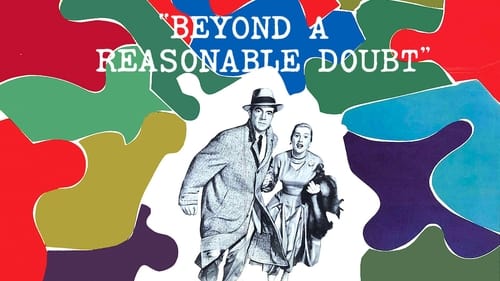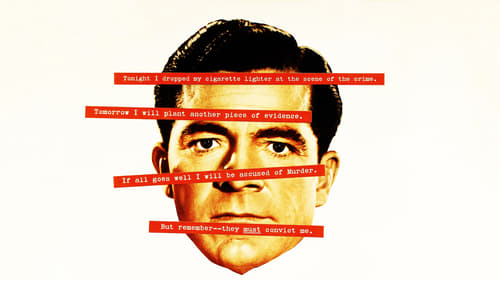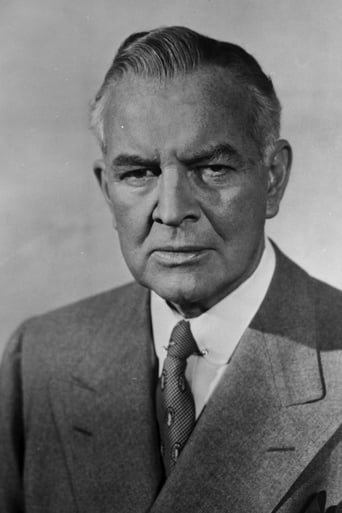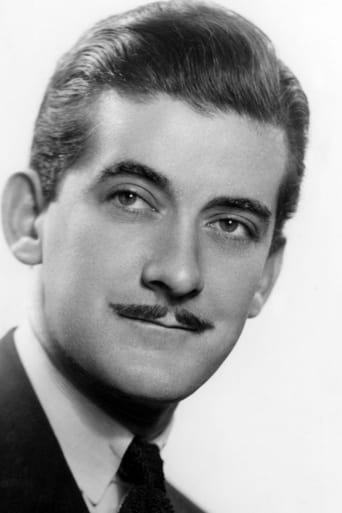Hellen
I like the storyline of this show,it attract me so much
ThiefHott
Too much of everything
Beystiman
It's fun, it's light, [but] it has a hard time when its tries to get heavy.
Voxitype
Good films always raise compelling questions, whether the format is fiction or documentary fact.
Richie-67-485852
We have an interesting premise here served with a nice twist while keeping your attention. I gave it a seven because today it would be considered a worthy entry into the suspense genre. I am surprised it didn't do well when released. It is always pleasure to watch Dana Andrews work as he is able to communicate and reach his audience with little or no effort while causing us to believe the character he is portraying. The story is interesting and when this movie is over, it has potential for good discussion as well criticism. It is not a rich production but a rushed one sort of like someone wanted to get this out in record time and for next to nothing giving it a lack of depth. The story picks up midway and then has us running along side of it eager to see it unfold and justice done. For people who like courtroom drama, there is a satisfaction here as well as a history lesson too. There were no Miranda rights back then, you could be charged with little or no evidence and executions were carried out right away. Today it takes at least 13 years to execute someone for fear they might innocent thus giving them the benefit of the time doubt. I always enjoy watching these older movies to study the streets, cars, talk, signs and people at random. Have a snack and enjoy
tomgillespie2002
Fritz Lang's last American film before he returned to Germany, Beyond a Reasonable Doubt suffers from the director's clear lack of interest. Lang was reportedly dismayed by the lack of visual creativity allowed by American producers (which was also clear in his penultimate American noir, While the City Sleeps (1956)), and so shortly after returned to his homeland to make the visually lavish double-bill Tiger of Bengal and The Indian Tomb (1959), dubbed the 'Indian Epic'. Beyond a Reasonable Doubt, an intriguing little noir starring Dana Andrews, is by no means a bad film, but is clearly the work of a man handicapped by the system and a film that is pessimistic in its execution.Tom (Andrews), a novelist in search of inspiration for his second book, is approached by his newspaper publisher father-in-law Austin Spencer (Sidney Blackmer) to help aide his opposition of state capital punishment. The plan is to plant circumstantial evidence of Tom's fake involvement in the recent unsolved murder of nightclub stripper Patty Gray. Naturally, during the trial, an incident prevents Austin from delivering the evidence and testimony that will prove Tom's innocence, so Tom's disgruntled fiancée Susan (Joan Fontaine) races against time to prevent Tom getting executed on Death Row.Lang had already exposed the fragility of the justice system in his German masterpiece M (1931), and Beyond a Reasonable Doubt begins in suitably grim fashion with the silent execution of an inmate. The plot is a great idea (to think what Hitchcock would have made of it) but the execution is plain and predictable. Although Andrews' performance is solid and the movie sometimes threatens to push the boundaries set by the censors at the time, it simply goes through the motions until a twist reveal in the last 15 minutes livens things up a bit. You most likely won't see it coming, but it ends the film with plenty of plot- holes to pick at and left me scratching my head at exactly what point the movie was trying to make. A rather flat end to a solid period of film noir for the German master.www.the-wrath-of-blog.blogspot.com
seymourblack-1
"Beyong A Reasonable Doubt" is an offbeat thriller with a fascinating plot about two men who devise a dangerous scheme to expose the flawed nature of the legal system, the uncertain value of circumstantial evidence and the inherent dangers of using the death penalty as a form of punishment for certain crimes. The clever set-up for the story, a number of entertaining plot twists and a good deal of suspense make the whole film compelling to watch and compensate greatly for some of its shortcomings which appear to be attributable mainly to its low budget.Newspaper publisher Austin Spencer (Sidney Blackmer) is an opponent of capital punishment who's become concerned about the conduct of his local D.A. Roy Thompson (Philip Bourneuf) who regularly uses circumstantial evidence to secure convictions for crimes which are punishable by the death penalty. Austin's concerns relate to the unreliable nature of the evidence, the risk of an innocent man being executed and the belief that the D.A. is more concerned with gaining publicity to advance his political career than he is about ensuring that the justice system operates fairly.Austin explains his concerns to Tom Garrett (Dana Andrews) a novelist who used to work for him as a reporter and suggests a plan that could lead to an innocent man being sentenced to death for a crime he didn't commit. If the plan could be carried out successfully and the man's innocence could subsequently be proved, the use of capital punishment could be effectively discredited.Tom, who's engaged to be married to Austin's daughter Susan (Joan Fontaine), agrees to be framed for the murder of a nightclub dancer and as he plants various items of phony evidence, Austin takes photographs which could later be used to prove that Tom's not the murderer. The plan seems to work well and Tom is eventually arrested and tried before the jury withdraw to consider their verdict. At this point, as planned, Austin gathers together the various documents and photographs that will prove Tom's innocence but before he's able to present them to the appropriate officials he's killed in a car crash and all the material that he's carrying which is pertinent to the case is burned in the wreckage. This leaves Tom in an incredibly tight spot and the developments that follow are genuinely surprising.It's deeply ironic that the two men whose scheme is intended to highlight the unfairness and deficiencies of the justice system actually have no concerns about misleading the police by planting false evidence, wasting their time in processing the case or impeding them in their pursuit of the real culprit. Furthermore, both men have no scruples about their plans to exploit the scheme for their own profit as it will provide good material for Austin's newspapers and Tom's next book."Beyond A Reasonable Doubt" is a real no-frills production with some acting performances which are rather perfunctory in nature. The main strengths of this movie however, are its lively pace, its wonderfully bizarre plot and the unexpected twists which make it so intriguing and enjoyable to watch.
ackstasis
'Beyond a Reasonable Doubt (1956),' another taut thriller from Fritz Lang, takes an intriguing concept and runs with it. Tom Garrett (Dana Andrews), a writer looking for an idea, and Austin Spencer (Sidney Blackmer), an editorialist against capital punishment, contrive a bizarre scheme to expose the flaws in the American legal system. Garrett agrees to set himself up as the prime suspect in a murder, using only circumstantial evidence. Spencer agrees to withhold the evidence of his innocence until after Garrett is convicted and sentenced to the death penalty. Joan Fontaine plays Susan Spencer, Garret's fiancée, who isn't let in on the ruse. The moment when Austin Spencer is killed in a car accident, leaving our hero seemingly without any hope of reprieve, is still shocking despite its inevitability, leaving a powerful feeling of hopelessness. The film's final twist, however, I did not see coming. Regrettably, 'Beyond a Reasonable Doubt' pulls yet another twist in its final seconds; it would've been better had the film been made a decade later, free from the restraints of the Production Code, which demanded (and received) an ending that "does not lower the moral standards" of audiences.








